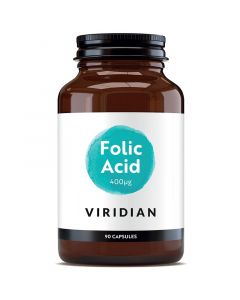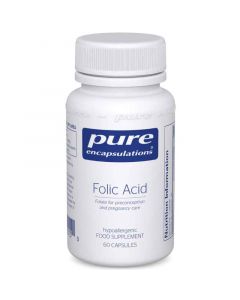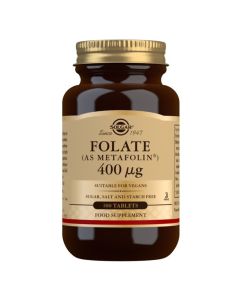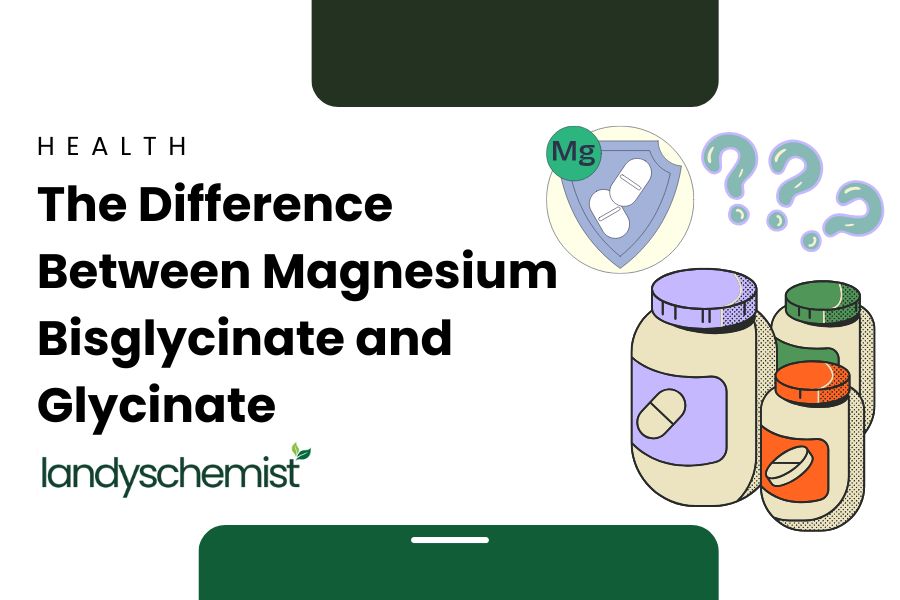
Benefits Of Folic Acid For Pregnancy
The journey of pregnancy and conception is remarkable, but also filled with a myriad of emotions. As expectant parents eagerly await the arrival of their little one, ensuring the health and well-being of both the mother and baby becomes paramount. In the realm of prenatal care, one crucial element is often spoken about – Folic Acid.
Recent statistics underscore the significance of folic acid supplementation during pregnancy, revealing that the prevalence of neural tube defects (NTDs) stands at 12.14 per 10,000 births. These NTDs are congenital conditions that can affect the development of the foetus, emphasising the importance of the right supplementation.
In this blog, we explore folic acid and its benefits for pregnancy, shedding light on its role in fostering a healthy and thriving start for your little one!
What is Folic Acid?
Folic acid is a synthetic form of the naturally occurring folate, which is a water-soluble B-vitamin, also called vitamin B9.
Folate plays a crucial role in bodily functions including the formation of red blood cells. It is involved in the synthesis and repair of DNA and cell division, making it particularly important during periods of rapid cell growth, such as during pregnancy and infancy. Folate also plays an important role in the formation of the baby’s brain, skull, and spinal cord.
What is the difference between folate and folic acid?
Folic acid and folate are related, and both are types of B vitamins. The term folate encompasses various forms of vitamin B9, including folic acid, dihydrofolate (DHF), tetrahydrofolate (THF) and 5-methyltetrahydrofolate (5-methyl-THF).
Folic acid, being a synthetically made variant, is utilised in the production of supplements, and is commonly added to fortified foods such as rice. In this context, rice is enriched with folic acid. The preference for folic acid in food fortification is because of its stability and is less susceptible to breakdown by heat and light compared to natural forms of folate.
How the MTHFR gene affects folic acid
Certain individuals face challenges in processing folic acid effectively due to variants in the MTHFR gene. This gene is instrumental in the production of the MTHFR protein, which plays a key role in folate processing within the body. Folic acid is important to prevent neural tube defects and so individuals that are unable to process folic acid may find it more beneficial to opt for folate supplements, as the body can metabolise folate more readily.
Folic Acid and Pregnancy
The initiation of the formation of a baby’s neural tube occurs within the first four weeks of pregnancy, emphasising the initial 28 days as a crucial period for neural development. Low levels of folate can increase the risk of neural tube defects because folic acid plays an essential role in DNA synthesis, red blood cell formation, cell division and helps in the normal development of the neural tube.
Scientific studies suggest that the consumption of folic acid can significantly decrease the risk of neural tube defects (NTDs). Typically, disruptions in cell growth within the neuroepithelium can cause NTDs. Folate is commonly used as a source for nucleic acid synthesis and since the closure of the neural tube necessitates the rapid growth of neuroepithelial cells, folate can contribute to the prevention of NTDs.
It is important to note that although studies show that folic acid intake can help to prevent many neural tube defects, there are some defects that have unrelated causes and can still occur.
What is a neural tube defect?
A neural tube defect is a congenital defect that affects the central nervous system, encompassing the brain, spine, or spinal cord. This defect arises during embryonic development when the neural tube does not fully close. The neural tube is a critical structure that is responsible for forming the early brain and spine of the developing baby. Typically, these defects manifest in the early stages of the pregnancy, often within the initial month of gestation.
Types of Neural Tube Defects (NTDs):
Anencephaly
Anencephaly is a condition characterised by incomplete formation of the baby’s skull and brain. This happens when the head end of the neural tube, known as the “cephalic” end, fails to close properly. In cases of anencephaly, the baby may be born without a forebrain and cerebrum, and the exposed brain tissue is often not protected by bone or skin. The absence of a fully functioning cerebrum typically leads to a poor prognosis for babies born with anencephaly.
Encephalocele
Encephalocele is a rare congenital anomaly impacting the brain. It arises when the neural tube fails to close, leading to a sac-like protrusion of the brain and its surrounding membranes through an opening in the skull. This opening may occur at any point along the centre of the skull. Typically identified after birth, encephalocele can be addressed through surgical intervention. Symptoms of encephalocele may include an accumulation of fluid in the brain, impaired muscle coordination and intellectual disability.
Spina bifida
Spina bifida is a spinal cord defect resulting from improper development or closure of the neural tube, leading to gaps in the spine. Various types exist, including myelomeningocele, meningocele and spina bifida occulta. This condition frequently involves the protrusion of protective membranes around the spinal cord through gaps in the spine, forming a sac. While many undergo surgery to close the spinal opening, damage to the nervous system can result in symptoms such as weakness or paralysis, incontinence, and loss of sensation.
How much folic acid to take for pregnancy:
When to take folic acid:
It is often recommended to take folic acid 3 months before and during the first 12 weeks of pregnancy.
How much Folic Acid should you take?
The normal recommended dosage of folic acid for pregnancy is 400mcg (micrograms) once a day. Sometimes a doctor will recommend a higher dosage if there is a bigger likelihood of your baby developing a neural tube defect.
How long does folic acid take to work?
Folic Acid can begin to take effect within a few hours. It is important to continue taking folic acid for the duration recommended by your doctor.
Folic Acid Recommendations for pregnancy:
The Viridian Folic Acid Capsules contain 100% active ingredients and are free from artificial fillers. It helps to support conception and pregnancy, as well as promoting psychological well-being. It helps to ensure the proper development of the baby and the mother's overall health.
The Pure Encapsulations Folic Acid Capsules provide 800ug of folic acid in each vegetarian capsule to help increase maternal folate status to decrease the risk of the development of neural tube defects.
The Solgar Folate 400ug tablets help to support healthy maternal tissue growth during pregnancy. It supports general wellbeing for men and women of all ages,
Summary:
- Folic Acid is the synthetic form of folate, a B-vitamin crucial for DNA synthesis and cell division. It plays a role in red blood cell formation and neural tube development.
- Neural Tube Defects result from either incomplete development of the skull and brain or when the neural tube does not fully close.
- Taking 0.4mg of Folic acid can help to reduce the risk of neural tube defects.
- Folic acid should be taken ideally 3 months before and during the first 12 weeks of pregnancy.
Commonly Asked Questions about Folic Acid During Pregnancy:
What are other sources of folic acid?
As folate is naturally occurring, it can be found in foods including spinach, kale, asparagus, poultry, orange juice and yeast extracts. However, it is important to take folic acid or folate during pregnancies as it is unlikely you will obtain 400 micrograms from diet alone.
Are there side effects of Folic Acid?
Common side effects of folic acid can include nausea, loss of appetite and bloating or gas.

By Saarah Mengrani










